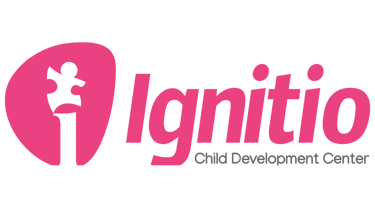Early Intervention: A Parent's Guide to Understanding Developmental Milestones
As parents, we celebrate every "first" in our child's life: the first smile, the first step, the first word. But what happens when these milestones don't arrive on a predictable schedule? It's natural to feel a mix of concern and uncertainty. This is where early intervention comes in. It's a system of support and education for very young children (from birth to age three) who have or are at risk for developmental delays. The core principle of early intervention is to provide help during the most critical period of brain development, when a child's brain is most receptive to learning. Timely support can significantly improve a child's ability to learn new skills, overcome challenges, and thrive in the long run.
HEALTH TIPS FOR KIDSAUTISMPARENT ADVICEABA THERAPYOCCUPATIONAL THERAPYSPEECH THERAPYEARLY INTERVENTION
Dr I Vishnupriya M.A.S.L.P
9/28/20253 min read


Early Intervention: A Parent's Guide to Understanding Developmental Milestones
The Importance of Early Intervention
As parents, we celebrate every "first" in our child's life: the first smile, the first step, the first word. But what happens when these milestones don't arrive on a predictable schedule? It's natural to feel a mix of concern and uncertainty. This is where early intervention comes in. It's a system of support and education for very young children (from birth to age three) who have or are at risk for developmental delays. The core principle of early intervention is to provide help during the most critical period of brain development, when a child's brain is most receptive to learning. Timely support can significantly improve a child's ability to learn new skills, overcome challenges, and thrive in the long run.
Understanding and Identifying Developmental Delays
A developmental delay isn't a diagnosis, but rather a red flag that a child may be behind in one or more areas of development. These areas include:
Cognitive skills: The ability to think, learn, and solve problems.
Communication skills: Speech and language.
Motor skills: Gross motor (walking, running) and fine motor (grasping, writing).
Social-emotional skills: Interacting with others, expressing and controlling emotions.
Adaptive skills: Daily living activities like dressing and eating.
Here are some general signs to look for, but remember that every child is unique. If you have concerns, it's best to seek professional guidance.
Signs of a potential developmental delay:
By 6 months: Doesn't respond to sounds or smiles, doesn't reach for or hold objects.
By 1 year: Isn't babbling, doesn't crawl, can't stand when supported.
By 2 years: Isn't speaking two-word phrases, can't follow simple instructions, doesn't imitate actions.
By 3 years: Has difficulty with running or jumping, speaks unclearly, doesn't play with other children.
How to Take the First Step: Self-Assessment
Navigating the world of early intervention can be overwhelming. To help parents in this process, we have developed a free, easy-to-use self-assessment tool. This web application helps you evaluate your child's developmental progress and understand if they might benefit from a professional assessment.
Take the self-assessment here: https://assessment.ignitio.co.in/
Who is Eligible for Early Intervention?
Eligibility is typically determined by a formal evaluation, which can be initiated by a parent or a pediatrician. The criteria vary, but generally, a child may be eligible if they:
Have a diagnosed physical or mental condition that will likely result in a developmental delay (e.g., Down syndrome, cerebral palsy, hearing loss).
Are experiencing significant developmental delays in one or more areas.
Are at risk for developmental delays due to biological or environmental factors.
The Next Steps: What to Do
If you have concerns about your child's development, here's what to do:
Talk to your pediatrician: They are your first and best resource. Share your concerns and discuss your child's developmental milestones.
Request a formal evaluation: If your pediatrician agrees or if you still feel a need for further assessment, you can contact a center like ours to schedule a comprehensive evaluation.
Create a personalized plan: If your child is found eligible for services, our specialists will work with you to develop an Individualized Family Service Plan (IFSP). This plan outlines the goals and services that will help your child reach their full potential.
Why Choose Ignitio Child Development Center?
At Ignitio, we believe in a holistic and family-centered approach to early intervention. Our team of experienced and compassionate specialists provides a range of services tailored to each child's unique needs, including:
Speech Therapy: To help with communication and language development.
Occupational Therapy: To improve fine motor skills and sensory processing.
Physical Therapy: To enhance gross motor skills and mobility.
Applied Behavior Analysis (ABA) Therapy: To support social skills and learning.
We are dedicated to empowering parents and helping children build the foundation for a successful future.
For further guidance, please visit our website or contact us directly.
Website: www.ignitio.co.in Contact Number: +91-9490166487
CONTACTS
76, Flat No 101, RP Enclave, Plot no, 8-3-1003, Srinagar Colony Main Rd, Hyderabad, Telangana 500073
Registrested Address
Follow Us
Copyright 2025 Ignitio Child Development Center All Rights Reserved


